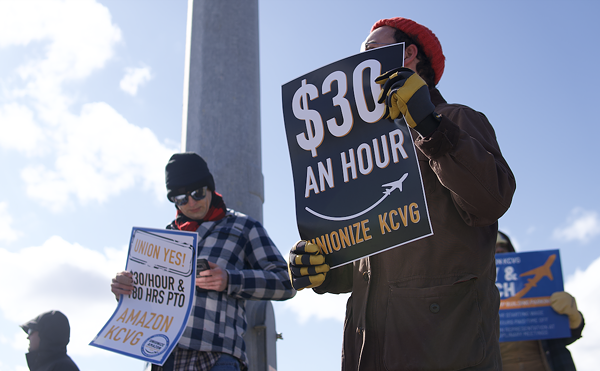For a full hour Thursday night, Democratic incumbent Sherrod Brown and Republican challenger Josh Mandel continued their feisty fight for Ohio’s U.S. Senate seat. For the most part, the debate centered on the candidates’ records and personal attacks, with policy specifics spewing out in between.
Apparently, the barrage of attacks is not what the candidates had in mind before the debate started. Throughout the debate, both candidates asked for substance, not attacks. At one point, Brown said, “I appreciate this clash of ideas. That’s what this debate should be about.” At another point, Mandel said, “We need less attacking, and we need more policy ideas to put people back to work.”
These comments came well into the debate. By that time, Mandel had criticized Brown for “Washington speak” so many times that an exasperated Brown quipped, “I don’t get this. Every answer is about Washington speak.”
Brown also launched his own attacks, which focused on Mandel’s dishonesty on the campaign trail, which previously earned Mandel a “Pants on Fire” crown from Cleveland’s The Plain Dealer, and Mandel, who is also Ohio’s treasurer, missing state treasurer meetings to run for political office.
But Ohioans have seen enough of the attacks in the hundreds of campaign ads that have bombarded the state in the past year. Voters probably want to hear more about how each candidate will affect them, and the candidates gave enough details to get some idea of where each of them will go.
On economic issues, Brown established the key difference between the two candidates’ economic policies: Mandel, like most of his Republican colleagues, believes in the trickle-down theory. The economic theory says when the rich grow, they can create jobs by hiring more employees and expanding businesses. In other words, proponents of the theory believe the success of the rich “trickles down” to the middle class and poor through more job opportunities. Belief in this theory is also why most Republicans call the wealthy “job creators.” Under the trickle-down theory, the wealthy are deregulated and get tax cuts so it’s easier for them to create jobs.
On the other hand, Brown says he supports a middle-out approach, which focuses on policies that target the middle class. That is how sustainable employment and growth are attained, according to Brown. Under the middle-out approach, tax cuts and spending policies target the middle class, and the wealthy own a higher tax burden to support government programs.
Some economists, like left-leaning Nobel laureate Paul Krugman, say the trickle-down theory should have been put to rest with the financial crisis of 2008. After all, deregulation is now credited with being the primary cause of 2008’s economic crisis. In that context, more deregulation seems like a bad idea.
Still, Brown’s contrast to Mandel holds true. Brown has repeatedly called for higher taxes on the rich. In the debate, he touted his support for the auto bailout and once again mocked Mandel’s promise to not raise any taxes. These are policies that do end up benefiting the middle class more than the wealthy. The auto bailout in particular has been credited with saving thousands of middle-class jobs.
On the other side, Mandel told debate watchers to go to his website and then offered some quick talking points: simplify the tax code, end Wall Street bailouts and use Ohio’s natural gas and oil resources “in a responsible way.” How Mandel wants to simplify the tax code is the issue. On his website, Mandel says he supports “a flatter, fairer income tax with only one or two brackets, eliminating almost all of the credits, exemptions and loopholes.” A study by five leading economists suggests a flat tax model would greatly benefit the wealthy and actually hurt the well-being of the middle class and poor. That matches with the trickle-down economic theory.
Another suggestion on Mandel’s website says, “Help job creators. Reduce capital gains and corporate taxes, and allow for a small business income deduction.” The small business portion would help some in the middle class, but an analysis from The Washington Post found 80 percent of capital gains incomes benefit 5 percent of Americans and half of all capital gains have gone to the top 0.1 percent of Americans. So a capital gains tax cut would, again, match the trickle-down economic theory.
What all this means is on economic issues the choice of candidates depends mostly on what economic theory a voter believes. Brown believes in focusing economic policies that target the middle class, while Mandel mostly supports policies that generally support what he calls “job creators” — or the wealthy.
On partisanship, both sides once again threw out different ideas. Although he was asked for three ideas, Brown only gave one: fix the filibuster. The filibuster is a U.S. Senate procedure that allows 41 out of 100 senators to indefinitely halt any laws. The only way to break the filibuster is by having a supermajority of 60 senators — a rarity in American politics. Brown said if this rule was removed, a lot more could get done in Congress.
Mandel had different ideas for stopping partisan gridlock in Washington, D.C. He touted his support for No Budget, No Pay, which would require members of Congress to pass a budget in order to get paid. He also expressed his support for term limits, saying lifelong politicians only add to the partisanship in Congress. Then, in a strange twist, Mandel’s last suggestion was to stop bailouts, which has nothing to do with partisanship or gridlock in Congress.
Then came Obamacare. Brown said he was “proud” of his vote and continued supporting the law, citing the millions of Americans it will insure. Meanwhile, Mandel responded to the Obamacare question by saying, “The federal government takeover of health care is not the answer.”
The fact of the matter is Obamacare is not a “government takeover of health care.” Far from it. The plan doesn’t even have a public option that would allow Americans to buy into a public, nonprofit insurance pool — an idea that actually has majority support in the U.S. Instead, Obamacare is a series of complicated reforms to the health insurance industry. There are way too many reforms to list, but the most basic effect of Obamacare is that more people will be insured. That’s right, in the supposed “government takeover of health care,” insurance companies actually gain more customers. That’s the whole point of the individual mandate and the many subsidies in Obamacare that try to make insurance affordable for all Americans.
Mandel made another misleading claim when he said Obamacare “stole” from Medicare, with the implication that the cuts hurt seniors utilizing the program. It is true Obamacare cuts Medicare spending, but the cuts target waste and payments to hospitals and insurers. It does not directly cut benefits.
The one area with little disagreement also happened to be the one area with the most misleading: China. It’s not a new trend for politicians to attack China. The Asian country has become the scapegoat for all economic problems in the U.S. But in this election cycle, politicians have brandished a new line to attack China: currency manipulation. This, as Ohioans have likely heard dozens of times, is why jobs are leaving Ohio and why the amount of manufacturing jobs has dropped in the U.S. In fact, if politicians are taken at their word, it’s probably the entire reason the U.S. economy is in a bad spot.
In the Brown-Mandel debate, Brown repeatedly pointed to his currency manipulation bill, which he claims would put an end to Chinese currency manipulation. Mandel also made references to getting tough on China’s currency manipulation.
One problem: China is no longer manipulating its currency. There is no doubt China greatly massaged its currency in the past to gain an unfair advantage, but those days are over, says Joseph Gagnon, an economist focused on trade and currency manipulation. Gagnon argues the problem with currency manipulation is no longer a problem with China; it’s a problem with Malaysia, the Philippines, Singapore, South Korea, Switzerland and Saudi Arabia. If the U.S. wants to crack down on currency manipulation, those countries should be the targets, not China, he argues.
In other words, if currency manipulation is a problem, Mandel was right when he said that countries other than China need to be targeted. To Brown’s credit, his currency manipulation bill targets any country engaging in currency manipulation, not just China. The problem seems to be the misleading campaign rhetoric, not proposed policy.
The debate went on to cover many more issues. Just like the first debate, Brown typically took the liberal position and Mandel typically took the conservative position on social issues like gay rights and abortion. Both touted vague support for small businesses. Each candidate claimed to support military bases in Ohio, although Mandel specified he wants bases in Europe closed down to save money. As far as debates go, the contrast could not be any clearer, and the candidates disagreed on nearly every issue.
The final debate between the two U.S. Senate candidates will take place in Cincinnati on Oct. 25.





